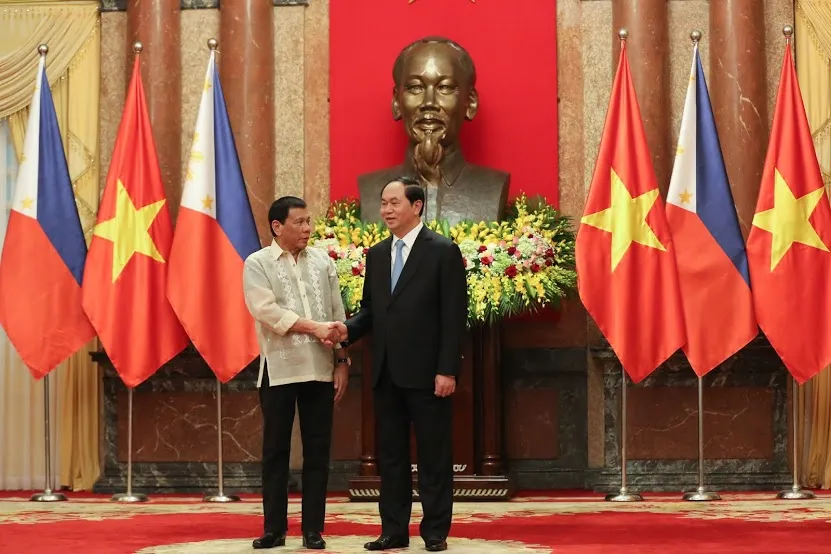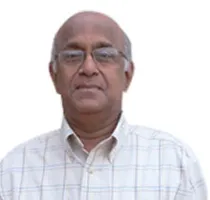
The second summit between US President Donald Trump and North Korean leader Kim Jong Un was held on 27-28 February in Hanoi with much less fanfare than the first one held in Singapore in June last year. But still the world watched the Hanoi summit with considerable interest, if not expectation. That the Hanoi summit ended abruptly was definitely a disappointment to all those who believed that the both Trump and Kim would carry forward the expectation generated by the Singapore meeting. But unfortunately, both leaders ended their summit on the second day. They also chose not to issue a joint statement on the summit. Conflicting versions of their summit talks have been reported in the media. President Trump himself stated soon after the meeting that he had walked out of the meeting due to “unacceptable North Korean demands on sanctions”.
According to Trump, North Korea wanted the sanctions to be removed in their entirety, but the US could not accept that demand.
But later, in a bid to clarify Pyongyang’s position, North Korean Foreign Minister Ri Yong Ho stated at a post-summit press conference, that what Pyongyang sought at the Summit was only a partial lifting of the sanctions “related to people’s livelihood and unrelated to military sanctions.” He explained that the Pyongyang’s proposal to close the Yongbyon nuclear site, including plutonium and uranium facilities, would be the biggest denuclearisation measure that Kim could undertake. He further underlined the intent of Pyongyang to make written commitments to a permanent halt of nuclear testing and long-range rocket testing.
The root cause for the ambiguity of views held by both sides and the ultimate failure of the Summit could perhaps be traced to the June 2018 summit held in Singapore. The joint statement signed by Trump and Kim at that time expressed Kim’s commitment to complete denuclearisation of the Korean Peninsula and Trump’s commitment to provide security guarantee to the Pyongyang regime. It did not make any reference to “complete, verifiable and irreversible denuclearisation”, a major goal that Trump always promised to accomplish. And by simply guaranteeing security to his regime, Kim was left “Scott free”. Given the long history of Pyongyang’s refusal to respect its denuclearisation obligations in the past, it was believed at that time that a clear time-bound roadmap on denuclearisation as part of the joint statement would have placed certain obligations on Kim. The absence of such a provision in the Singapore joint statement is now considered as a serious diplomatic drawback.
The abrupt collapse of the Hanoi Summit, though undoubtedly a setback to the Korean peace and denuclearisation, has, however, not left any strong trail of bitterness between the US and North Korea.
Both leaders parted in a friendly mood with a hope to resume their talks without specifying dates. For Trump, Hanoi Summit could bring some realistic lessons on how to deal with Kim effectively without hampering the prospects of denuclearisation of the Korean Peninsula. Though it would be tempting for Trump to show some substantial diplomatic achievement to his people who would soon be in an election mode, he says, “We want to do the right deal. Speed is not important”. Many will agree with him that it is better to have no deal than a bad deal. US Secretary of State, Mike Pompeo, however, is quite optimistic when he says, “We are anxious to get back to the table so we can continue that conversation that will ultimately lead to peace and stability, better life for North Korean people and a lower threat, a denuclearised North Korea”. Though Pyongyang has not closed its doors to future talks, many in the official circles in North Korea worry whether Kim will continue to maintain the same interest and mood to pursue talks with Washington.
The failure of the Hanoi Summit has drawn varying responses from South Korea, Japan and China, which are the closest neighboring countries of North Korea. As for South Korea, President Moon Jae-in is the one who has been connected with the whole process of US-North Korea dialogue process. Though disappointed by the failure of Trump-Kim meeting, he is quite keen to keep the dialogue process on. He stated that his administration would closely communicate and cooperate with the US and North Korea to help their talks reach a complete settlement by all means. Moon believes that the progress of the Inter-Korean relations would very much depend on the kind of talks that are going on between Washington and Pyongyang. Moon stated that Seoul would consult with the US on ways to resume joint projects with North including tourism, development at Mount Kumgang, and the Kaesong Industrial Complex.
Japan has always expressed its strong reservations about any soft policy towards North Korea and stressed the need to maintain maximum pressure on Pyongyang.
Shinzo Abe is the only prominent leader who has not met Kim during the last about two years when the Korean scene has been unfolding. Several Japanese security analysts believe that no deal is better than a bad deal offering concessions in the nuclear field to North Korea. Many fear that given Trump’s unpredictable nature, he might even concede some compromises to Kim in order to show diplomatic gains to his people.
Japan is truly concerned that its own security would be seriously endangered as long as North Korea does not agree to denuclearisation. It therefore insists on complete, verifiable and irreversible denuclearisation of the Peninsula. Going by its own past experiences with Pyongyang in the six party talks, Japan insists on the need for obtaining a full declaration of all nuclear and missile facilities in North Korea.
Many Japanese security analysts also fear that Kim’s definition of the denuclearisation of the Korean Peninsula would also include the removal of the weapons system developed and maintained by the US in its owns military bases in South Korea and Japan. In addition, Japan also wants the North Korean government to settle the long pending issue of Japanese abductees still believed to be living in North Korea. Prime Minister Abe is reported to be keen on having his own summit with Kim to discuss the abduction and security issues.
Finally, the failure of the Hanoi Summit has given considerable relief to China, which feels that as long as the US-North Korea talks remain deadlocked, its own role as a key broker will continue to be unhindered. And there are reports that Kim is likely to visit Beijing very soon for consultation.
The views expressed above belong to the author(s). ORF research and analyses now available on Telegram! Click here to access our curated content — blogs, longforms and interviews.




 PREV
PREV



